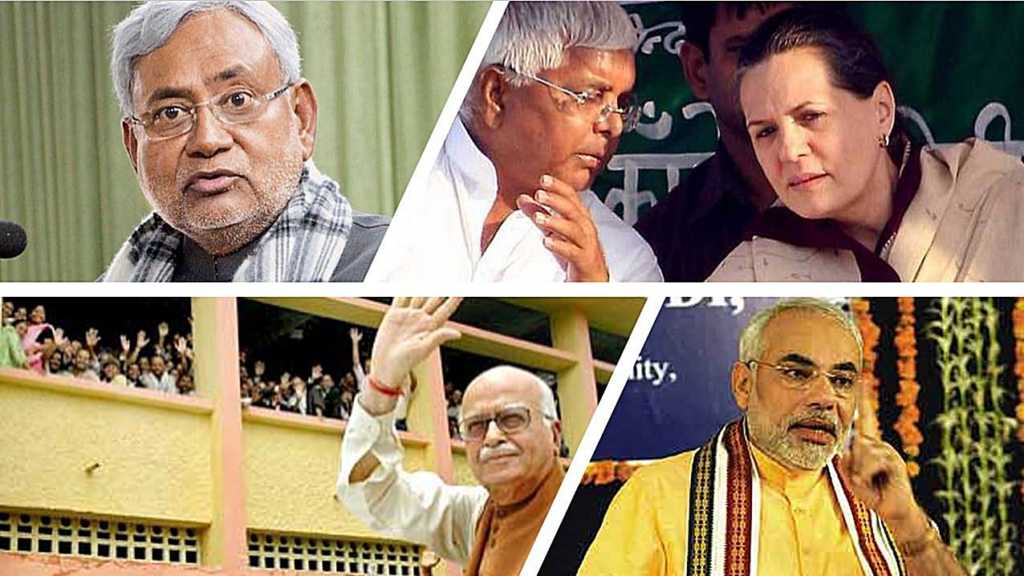The Congress, which barely managed to end up with 78 seats, used every trick up their sleeve to manipulate HD Kumaraswamy Gowda in order to keep the BJP, the single largest party in Karnataka, out of power. To everyone’s surprise, Kumaraswamy wasted no time in agreeing to this unholy alliance, which would put Karnataka in peril if it sees the light of the day.
Interestingly, the very people who cried hoarse on BJP’s tactical alliances with other parties in states like Goa, Manipur and Meghalaya, are now trying to justify this coalition, carefully twisting the facts in order to indulge in ‘whataboutery’ and mislead the masses as has been their modus operandi for decades. However, they may have forgotten this famous quote: – ‘You can fool some people all the time, you can fool all the people for some time, but you cannot fool all the people all the time.’
A similar case of deceit and treachery occurred 13 years ago, when Congress used every trick up their sleeve just to keep the BJP and its allies out of power. Like in the case of Karnataka, they threw ethics, rules and regulations out of the wind, just because they couldn’t bear to see the sight of BJP in power. In a caustic book named ‘Kashi ka Assi’, the quotes of a passage in the same fit superbly in the context of the scheming attitude of the Congress, because for them, ‘ethics and fairplay are like ornaments, to be worn only for showtime!’
The horse trading that the liberal intelligentsia accuse BJP of is something only Congress has expertise in, from the dark days of Emergency to the Rameshwar Prasad case, which is uncannily similar to the current case in Karnataka. The legendary Rameshwar Prasad and others vs. Union of India is a testimony to that legendary case.
February 2005: The legislative Assembly Elections for Bihar had just ended. Contrary to expectations, Lalu Prasad Yadav led RJD, along with Congress led UPA, had barely managed to get 72 seats in all. The incompetent rule of Rabri Devi had come to an end, while the NDA alliance got the maximum seats. However, their total of 92 seats was still short for staking a claim in the government, with 122 seats being the required number for obtaining simple majority in the Bihar Legislative Assembly.
It is here that the story took an interesting turn. Apart from the two factions, the Independents had won a whopping 17 seats, and just like the JDS, the Ram Vilas Paswan led Lok Janshakti Party had clinched 29 seats, and was virtually in the position of a kingmaker. However, the LJP refused to support either NDA or UPA, even when almost all the Independents vouched for the NDA.
Despite the initial refusal, on the lines of SP’s support in 2012, a significant chunk of LJP MLAs reneged on the collective decision and decided to give external support to NDA. Unlike the situation in Karnataka, this was perfectly permissible, since UPA hadn’t staked claim, and JDU + BJP had already declared an extended alliance much before the elections.
Before Nitish Kumar could stake claim for the government, the Governor had already faxed his decision to the Central Government: ‘Dissolve the legislative assembly under Article 356 on the grounds of an illegal alliance’. Yes, just because Congress couldn’t bear to see the BJP in power, no matter what the role, they dissolved the assembly without even listening to the stake of the alliance in concern.
Ironically, as the governor Buta Singh, a known Congress sycophant, faxed this decision to the Centre, the group of MLAs that had stood outside to stake their claim for the government presented a different picture altogether. The total members present outside the Raj Bhavan amounted to 126, well beyond the majority mark of 122. Now such deceit wouldn’t go unnoticed, and needless to say, the disgruntled NDA lodged a case in the Supreme Court. When the facts came to light, the bench led by Chief Justice Y K Sabharwal and later his successor K G Balakrishnan among others, took UPA and their sycophants, including Governor Buta Singh to the cleaners, criticizing them for their ‘hasty decision’ and effectively nullifying the order. With that, Rameshwar Prasad case proved that no matter how high and mighty, no party has the power to throw democracy out the window for their own benefits.
Fresh elections were announced for October, and this time the NDA made no mistake, effectively capturing a thumping majority of 133 seats with no room for back door alliances. Even Buta Singh had to resign by January 2006 following a massive uproar regarding the issue .
With this, as we look forward to the future of Karnataka, we must not forget how low Congress can stoop to remain in power, and how one cannot let a state be ruined in the same way Kerala, Kashmir and Bengal have been.
